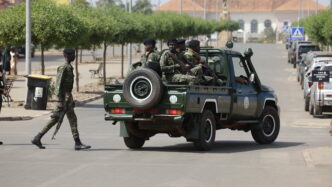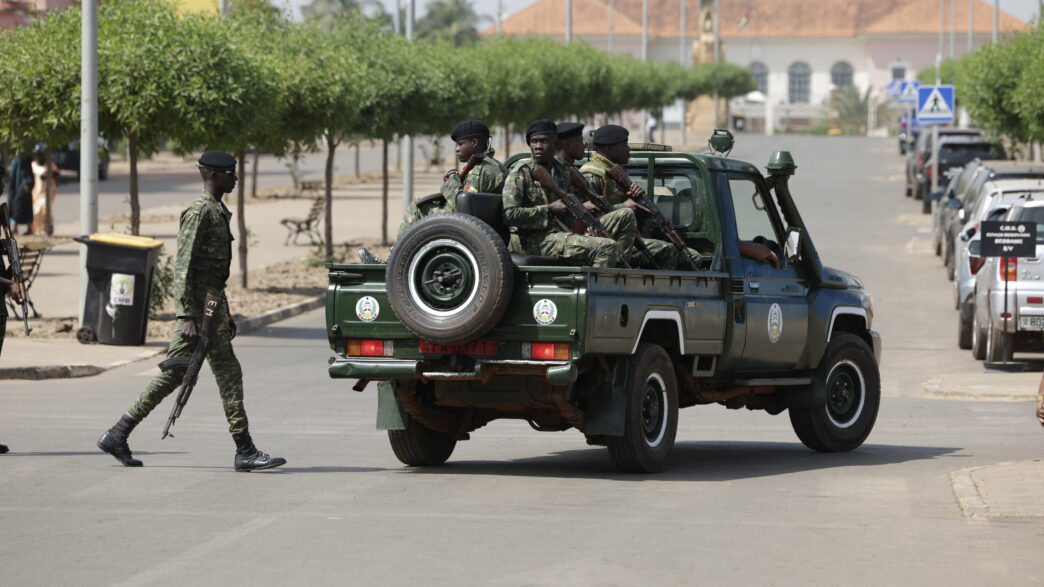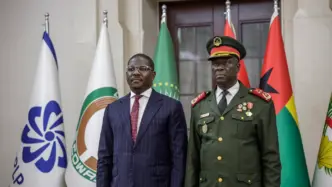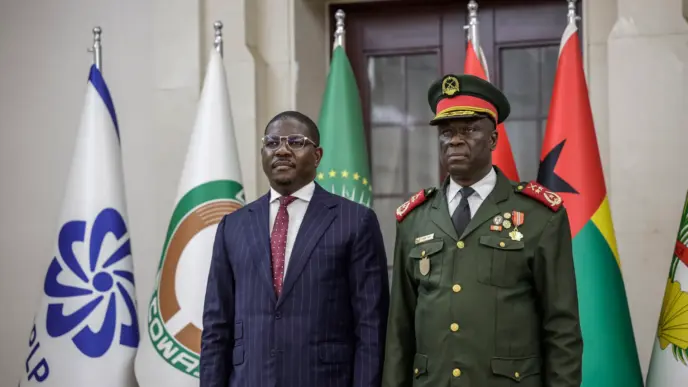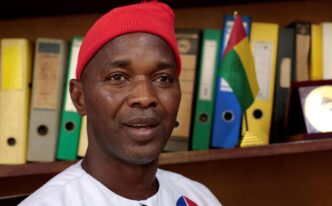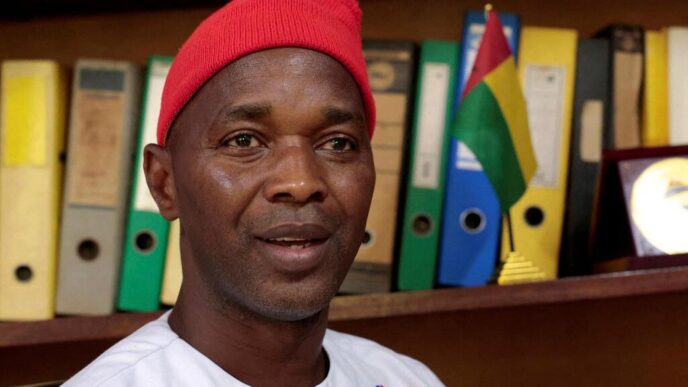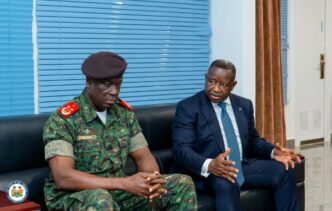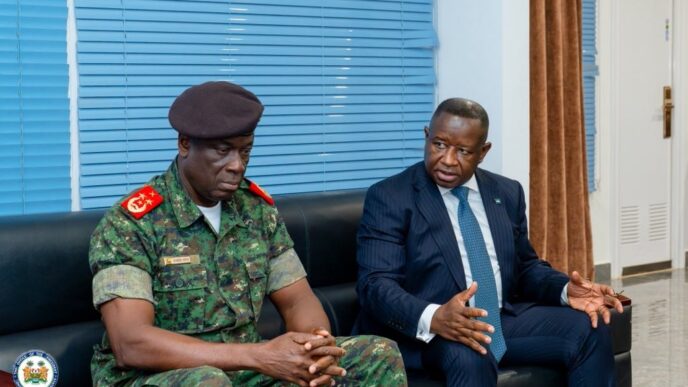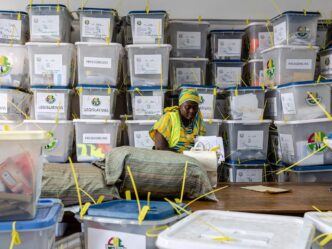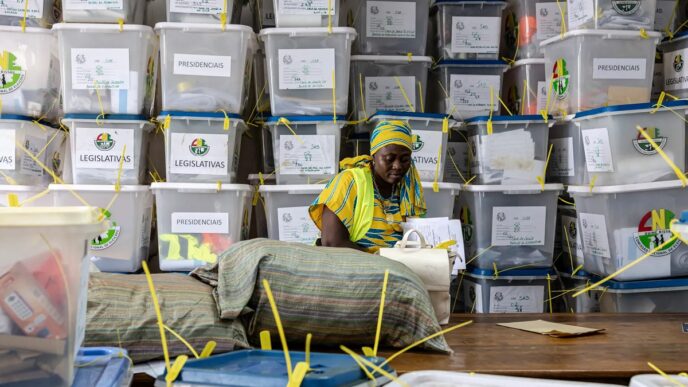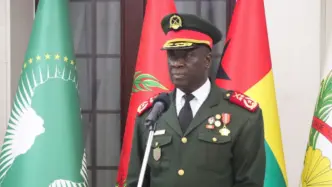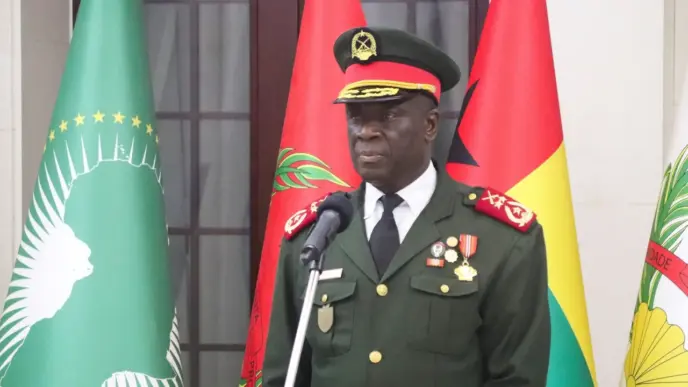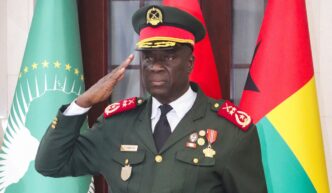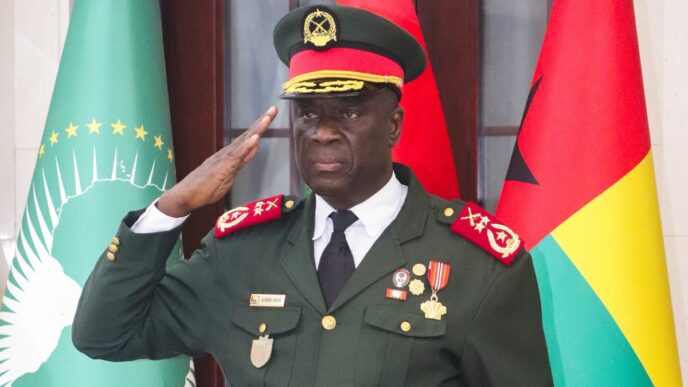Daily life began cautiously resuming in Guinea-Bissau’s capital on Friday, two days after soldiers seized power in the country’s fifth military takeover since independence.
Although the situation remains tense, parts of Bissau are showing signs of movement as residents slowly return to the streets.
The coup unfolded just a day before election officials were scheduled to announce preliminary results from the presidential and parliamentary vote held on November 23.
Following the takeover, the armed forces installed army chief General Horta N’Tam as the country’s leader for a one-year transitional period.
Reporters in Bissau observed taxis and private cars moving again along the main road connecting the harbour to the presidential palace, with some pedestrians also venturing out.
While checkpoints and troops remain stationed at strategic sites, security has been relaxed in certain neighbourhoods.
Outside the city centre, however, activity was more limited, with markets reopening to thin crowds and many streets remaining largely empty.
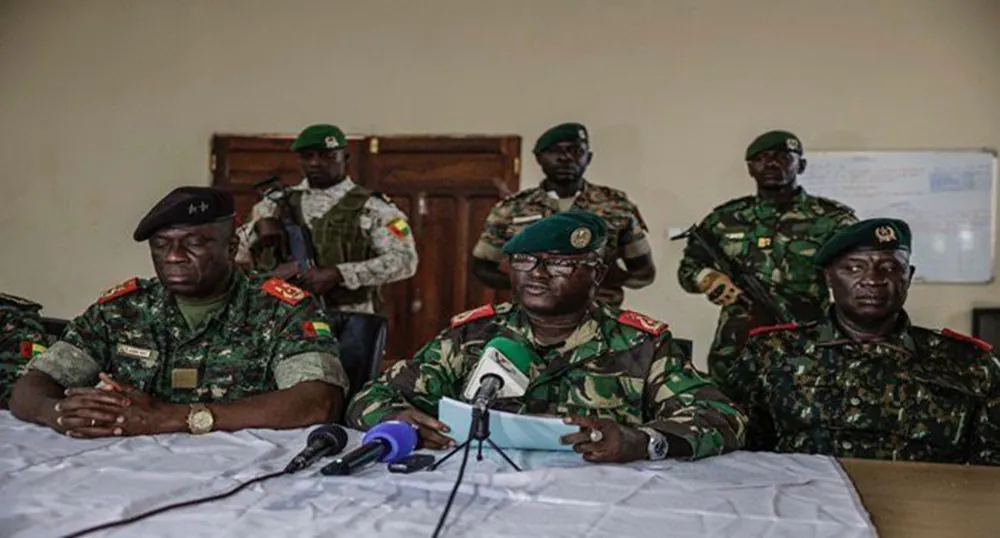
The country, wedged between Senegal and Guinea, has suffered repeated political upheaval since breaking away from Portugal in 1974, including four previous coups and numerous failed attempts.
Chronic poverty, weak institutions and persistent instability have also turned the nation into a major transit point for cocaine trafficked from Latin America into Europe.
Borders that were shut following Wednesday’s coup have now been reopened, and the nationwide curfew imposed by the military has been lifted.
The new authorities have also ordered schools, businesses and markets to reopen in a bid to restore basic daily life.
Ousted President Umaro Sissoco Embaló has since left the country and travelled to Senegal.
Meanwhile, opposition candidate Fernando Dias da Costa claimed victory in Sunday’s polls. He accused Embalo, who has also declared himself the winner, of orchestrating the coup to block a transfer of power.
Guinea-Bissau has a history of disputed elections.
The 2019 presidential race ended in months of uncertainty until ECOWAS eventually recognised Embaló as the winner in April 2020, bringing the standoff to an end.


 Trending
Trending 
